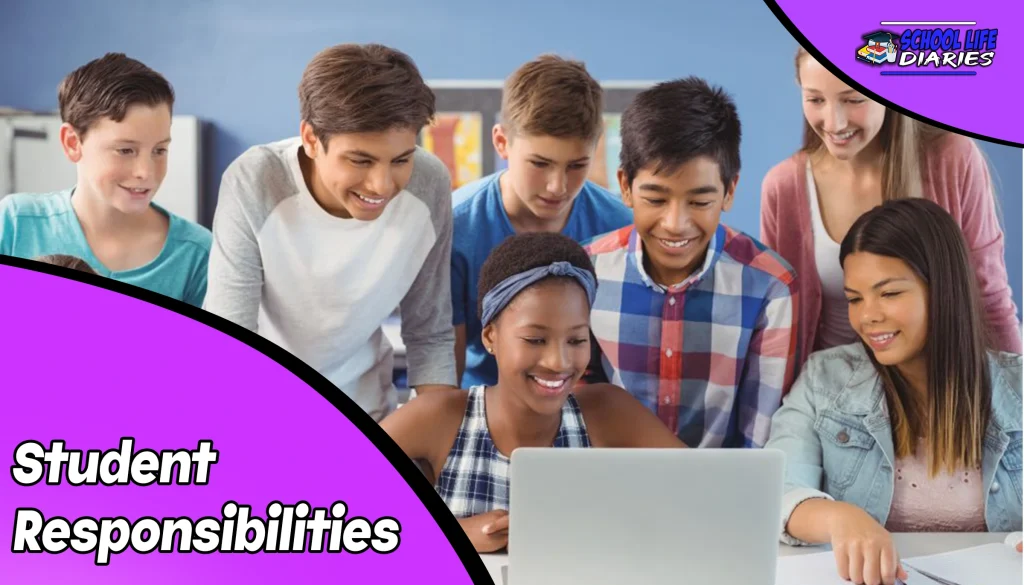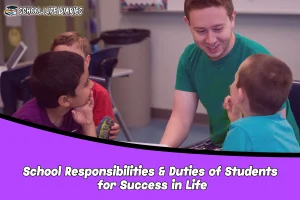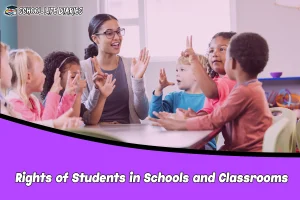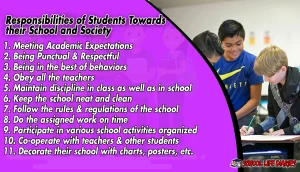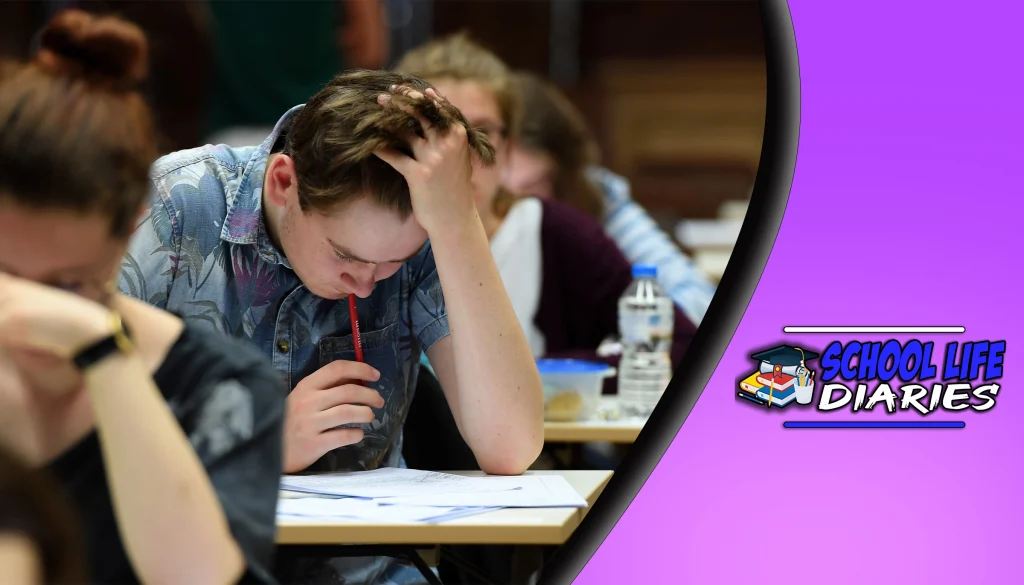Student responsibilities include actively participating in class discussions, completing assignments on time, and respecting the opinions and ideas of others. Additionally, utilizing calendars or planners can help students keep track of deadlines and ensure they allocate sufficient time for each task.
What Responsibilities Do I Have as a Student in Maintaining a Healthy and Safe Learning Environment?
One crucial aspect for students is effective time management. Another responsibility that falls upon students is the creation of a positive learning atmosphere. By encouraging constructive dialogue and collaboration among fellow classmates, students contribute to a supportive community where everyone feels valued and motivated to succeed. Balancing academic commitments with personal life is another significant responsibility that lies with students. While focusing on academics is essential, neglecting personal well-being can hinder overall productivity. Students should prioritize self-care activities like exercise, socializing, or pursuing hobbies alongside their studies. Striking a balance between academic and personal life ensures sustained motivation and prevents burnout.
What Strategies Can I use to Stay Organized and Manage my Time Efficiently?
To enhance productivity and ensure effective time management, employing organizational strategies is essential. This allows students to prioritize tasks and allocate specific time slots for each task. Additionally, it helps in avoiding procrastination as having a set schedule instills discipline and keeps students on track. Another effective strategy for staying organized and managing time efficiently is setting goals. Setting deadlines for each goal helps in prioritizing tasks and prevents last-minute rush or stress. In addition to scheduling and goal-setting, utilizing technology tools can greatly assist in managing time effectively.
These tools enable students to stay organized by providing visual representations of their schedules and deadlines. By implementing these strategies for time management and staying organized, students can optimize their productivity while maintaining an efficient learning environment. It is important to remember that organization requires consistent effort and adaptability as priorities may change throughout the academic journey..
School Responsibilities & Duties of Students for Success in Life
A key aspect of achieving success in life is fulfilling the obligations and duties assigned by educational institutions. Fulfilling responsibilities assigned by educational institutions is essential for achieving success in life. Maintaining academic excellence requires dedication and active engagement in learning processes. Developing effective study habits allows students to maximize their potential while enhancing social skills helps build meaningful connections with others.
Roles and Responsibilities of Students in Classroom Management
This means coming prepared with completed assignments, actively listening to the teacher, and engaging in classroom discussions. In addition to active participation, effective communication is another key student responsibility in classroom management. This includes completing assignments on time, seeking help when needed, and taking ownership of their academic progress. Students should be proactive in identifying areas where they need improvement and take appropriate steps toward addressing them.
Maintaining focus, active participation, and effective communication are essential roles and student responsibilities in classroom management. By fulfilling these responsibilities, students contribute to a positive learning environment that fosters both individual growth and collective success.
Rights of Students in Schools and Classrooms
Student empowerment is another key element in promoting student rights in schools and classrooms. Additionally, fostering student voices is essential in upholding student rights within schools and classrooms. Creating platforms for students to express themselves allows them to contribute meaningfully to the learning process while feeling valued as individuals. Educators can promote student voice by incorporating activities such as debates, presentations, surveys, or class meetings into the curriculum.
Respecting the rights of students is fundamental for effective classroom management. By prioritizing student engagement, empowerment, and voice within schools and classrooms, educators create an environment where all learners feel valued and supported in their educational journey. Students who feel respected are more likely to take ownership of their learning process while developing important skills necessary for success both academically and personally, such as critical thinking, problem-solving, and collaboration.
Responsibilities of Students Towards their School and Society
This paragraph will discuss the responsibilities of students towards their school and society.
These responsibilities include meeting academic expectations, being punctual and respectful, and maintaining good behavior.
Meeting Academic Expectations
Meeting deadlines is an essential aspect of academic success. In addition to meeting deadlines, employing effective study techniques is crucial for students to excel academically. Maintaining academic integrity is another key responsibility for students. This means completing assignments independently and honestly without resorting to cheating or plagiarism. Upholding ethical standards not only demonstrates respect for oneself but also ensures fairness among peers.
Being Punctual & Respectful
Being punctual means arriving on time for classes, meetings, and appointments. It demonstrates respect for others’ time and shows a commitment to one’s education. Additionally, being respectful involves treating teachers, peers, and staff members with courtesy and consideration. This allows the teacher to begin their lesson promptly and ensures that all students receive full instruction time.
In addition to being punctual, developing good habits also includes effective time management skills. Good time management helps reduce stress levels by preventing last-minute rushing or cramming sessions. Overall, being responsible as a student requires developing good habits such as being punctual and practicing effective time management.
Being in the best of behaviors
Exhibiting exemplary conduct and a high level of decorum contributes significantly to fostering a conducive learning environment. One aspect of good behavior is having effective communication skills. Such proactive participation helps create an inclusive environment where ideas are valued and diverse perspectives are respected. Exhibiting exemplary conduct by being proactive, maintaining a positive attitude, and possessing good communication skills greatly benefits both individual learners as well as the overall classroom dynamic.
Obey all the teachers
Obeying authority in the classroom is not merely about blindly following rules, but rather it establishes a foundation of respect between students and teachers. Classroom discipline relies on the cooperation between students and teachers. This cooperation helps create a harmonious atmosphere where everyone can focus on learning without unnecessary distractions or disruptions.
Obeying authority does not mean suppressing individuality or stifling creativity; rather, it ensures a conducive environment for both teaching and learning. In this context, respecting teacher authority does not strip away student autonomy but instead allows them to flourish within established boundaries. It enables educators to effectively manage classrooms while providing students with the necessary structure and guidance.
Maintain discipline in class as well as in school
Maintaining discipline, students learn to prioritize their education and develop good study habits. Furthermore, maintaining discipline promotes respect for authority figures such as teachers and administrators. Students who practice discipline demonstrate obedience to instructions given by their educators, recognizing that these guidelines are in place for their benefit. Maintaining discipline is essential for fostering respect among peers and teachers while promoting student responsibilities.
Keep the school neat and clean
A clean and tidy school not only enhances the overall aesthetic appeal but also creates a healthy atmosphere that promotes learning. The importance of cleanliness in schools cannot be emphasized enough. Regular cleaning sessions can also be organized where students actively participate in maintaining classrooms, corridors, and other common areas. This not only teaches students responsibilities but also develops teamwork skills. The benefits derived from maintaining cleanliness extend beyond aesthetics; they contribute to better health outcomes and foster an optimal learning environment. By promoting good habits and organizing awareness campaigns, we can ensure that our schools remain clean spaces where knowledge thrives effortlessly.
Follow the rules & regulations of the school
Employing strategies for effective communication ensures clarity regarding expectations while fostering a sense of teamwork among students. Engaging in extracurricular activities provides additional avenues for personal growth while still adhering to the values upheld by the school community.
Do the assigned work on time
Time management skills play a crucial role in meeting deadlines and completing assignments promptly. These individuals are also more likely to avoid procrastination and last-minute panic as they understand the importance of starting early and working consistently.
Participate in various school activities organized
Engaging in diverse activities helps students build self-confidence as they discover hidden abilities and showcase their unique strengths to others. Students who engage enthusiastically and contribute collaboratively find themselves forming meaningful relationships with others while honing important skills that will benefit them throughout their lives. Therefore, it is crucial for students to seize these opportunities offered by schools and embrace the chance to broaden their horizons beyond academic pursuits.
Co-operate with teachers & other students
Effective communication plays a vital role in cooperative learning environments. Students must learn how to express their thoughts clearly and concisely while actively listening to their peers’ ideas. By practicing effective communication skills, students develop strong interpersonal relationships that promote a positive classroom atmosphere conducive to learning. Teamwork and collaboration are key components of cooperative learning. Students are encouraged to work together on group projects or problem-solving tasks where each member contributes their unique strengths.
This fosters a sense of belonging within the classroom community while promoting mutual support and shared responsibility. By participating in various school activities organized by teachers and cooperating with both instructors and fellow classmates through cooperative learning approaches, students can develop effective communication skills along with teamwork abilities necessary for academic success as well as personal growth.
Decorate their school with charts, posters, etc.
School decorations not only add color and vibrancy to the walls but also serve as powerful tools for learning. Charts and posters can be used to display educational content, such as maps, scientific diagrams, or historical timelines. These visual aids make complex concepts more accessible and help students grasp information more effectively. Additionally, decorating the school with student-generated artwork or motivational quotes can inspire a sense of pride and motivation among learners.
This involvement promotes a positive atmosphere where everyone feels valued and connected to their learning environment. Moreover, engaging in creative activities like designing charts or posters allows students to develop their artistic skills while simultaneously reinforcing academic concepts. By incorporating these visual aids into the learning environment, educators create a space that is both aesthetically pleasing and conducive to effective teaching and learning. Students’ active participation in this process empowers them to express themselves creatively while contributing meaningfully to their educational community.
Conclusion: Student Responsibilities
This includes following the rules and regulations set by our schools, respecting our teachers and peers, and actively participating in classroom activities. This involves being respectful towards others’ opinions, contributing to discussions, completing assignments on time, and being accountable for our actions. This includes being involved in community service projects or volunteering efforts that benefit those in need.
Overall, being a student comes with various responsibilities ranging from maintaining a healthy learning environment to actively participating in classroom activities. Fulfilling these responsibilities with dedication and commitment while respecting others’ rights along with contributing positively towards society’s betterment will undoubtedly lead us towards success both academically as well as personally.

